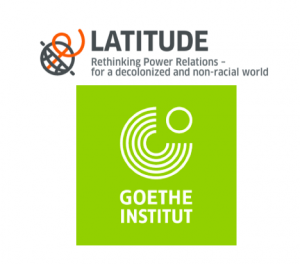 “Fusion Food”: Exchange or Appropriation?
“Fusion Food”: Exchange or Appropriation?
Dr. Li Zhang, with Regine Hader, Elisa Jochum, Anna Felicity Friedman, and Ozoz Sokoh
Latitude: Rethinking Power Relations for a Decolonized and Non-Racial World
Goethe Institute, October 29, 2019
(…)
Li Zhang: Food is essential for human survival, so most people in our history have eaten what they could get access to. Sure, each culture developed its own varieties of crops and animals, and its own cuisine and way of cooking. But “globalisation” is not just a recent phenomenon, and we have been exchanging food and seeds around the world for centuries. Can you imagine “Italian food” without tomatoes from the Americas? It is the same thing in China. Sichuan food could only become spicy with the addition of hot chili peppers from the Americas. We also make lots of traditional dishes with corn, potatoes and other ingredients that were not originally domesticated in China. Importing these varieties centuries ago helped solve a lot of hunger issues in China, as in Europe and elsewhere, too. Most of these exchanges happened because of colonialism, but people’s concern, when it came to food, was basically to survive. This doesn’t mean that Anna’s concern is not valid.
(…)
Li Zhang: What matters is not mainly our cultural identity or (dis-)respectful attitude, but the political and economic relationships behind that. We have to think more deeply about who can afford to buy fancy foods from all over the world, and who can only afford to eat the cheapest thing that gets dumped on them. Who can maintain their local foods and culture, and whose foods and cultures have been pushed off the land and squeezed out of the market?
(…)
Li Zhang: The ironic thing is that wealthy, cosmopolitan people in global cities like Shanghai, LA and Berlin can enjoy healthy, organic, “peasant” (as in traditional) food from any place, while the poor peasants who produce that food are now forced to sell it at a premium. Meanwhile, they themselves only get access to cheap, processed foods, most of it dumped from the global North.
(…)
Li Zhang: My sense is that there are important differences [between contemporary food exchange under capitalism and previous historical exchange of foods]. First, when different foods and varieties were exchanged in the past, the process occurred relatively slowly, and the new foods became gradually incorporated into local production practices and cuisines. They became part of food culture, produced locally according to their use value for those who grew it. But, nowadays, international food trade is taking place much faster, and these foods don’t become part of local production practices. They are grown all over the world, often by people who don’t eat them but just grow them for the global market.
(…)
Li Zhang: I think, what many social movements call “food sovereignty”, helps us reflect on your question of diplomacy, bringing it down from the level of governments to real people. Food sovereignty means that people should have the right and power to control what they eat, what they grow, what they buy and sell. It doesn’t mean people should not exchange food, or that people should only consume a particular type of food. But it does mean that people need to have land, be able to keep their own seeds, and protect their own food cultures from colonisation and commodification.
(…)
Li Zhang: Here is my “recipe” for food sovereignty:
Recipe for Food Sovereignty
People should have the right and power to grow their own food, to control what they eat and how they eat. This makes one’s own food more delicious and nutritious, sustains cultures and environments, and maintains livelihoods and wellbeing of food producers and consumers alike. No matter what food you choose, this basic recipe for food sovereignty will help you make it into a dish worth fighting for!
Ingredients:
abundant land and water
heirloom seeds and local varieties of livestock
indigenous knowledge and cooking practice
First, make sure to access plenty of land and water. If you’ve been dispossessed of this, or lost your knowledge about how to work it, you must struggle to regain it!
Recycle nutrients from your livestock into the soil, preserving and building organic matter. Protect your water and the woods that surround it. This time of preparation might be long, so if your soil and water are depleted and polluted, start improving them right away.
Save your heirloom seeds and exchange them frequently with your neighbours. Do the same with your local varieties of livestock. Well-protected genetic material like this is priceless because it adapts perfectly to your microclimates and resists pests that commonly affect mainstream, industrial, homogenous monocultures. If you have run out of heirloom seeds and local varieties of livestock, coordinate with other local producers to cultivate your community seed bank!
Then, tap into that knowledge held dear by your grandmother, and her grandmother, as you apply modern tools to work the land. Preserve and prepare your foods in the way that reflects and cherishes your own culture.
Serves as many as are willing to struggle in solidarity.
The article can be found here in German, and here in English.